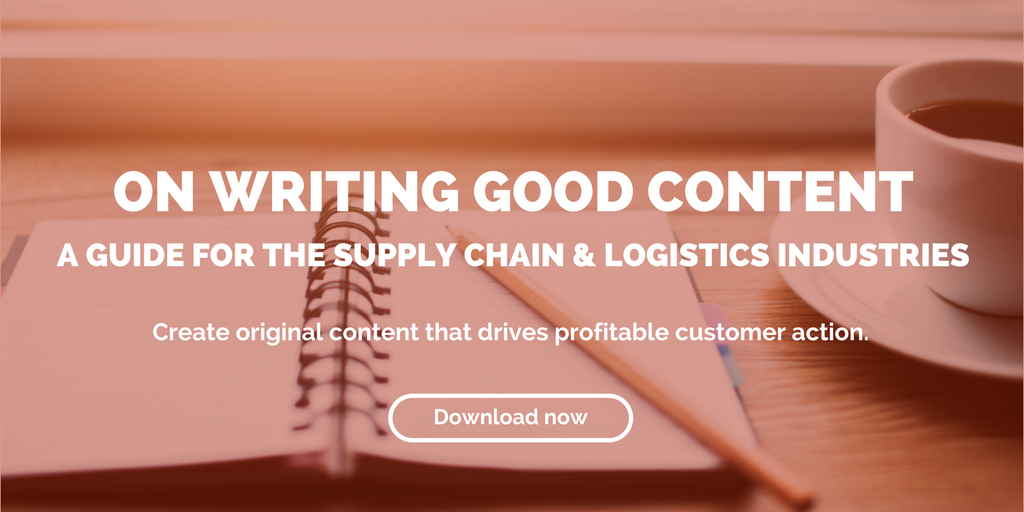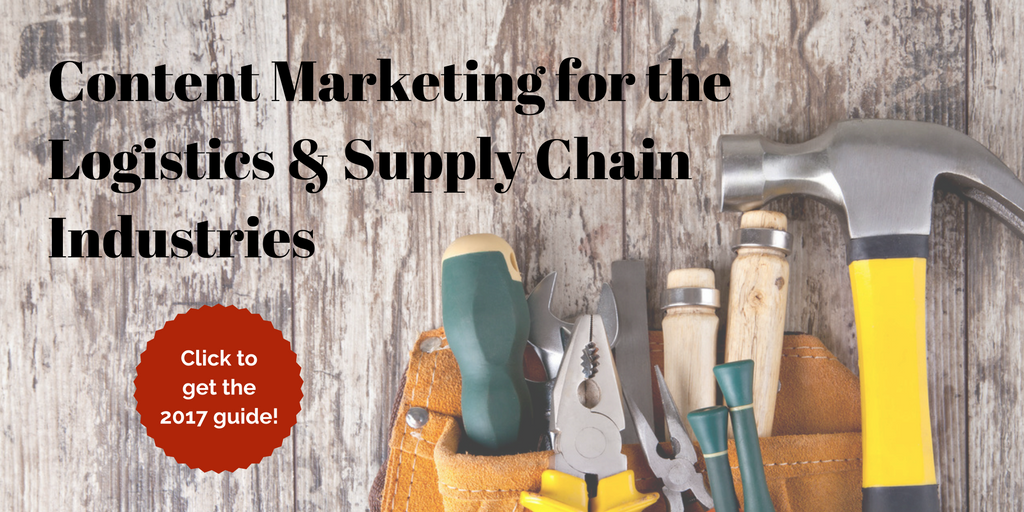
by Jennifer Hart Yim | Oct 29, 2019 | Blog, Logistics, Marketing, Social Media, Supply Chain
As other social networks face unprecedented controversy, LinkedIn is still the best professional social media tool. But too many Supply Chain professionals aren’t getting the most from it.
This guest post comes to us from Argentus Supply Chain Recruiting, a boutique recruitment firm specializing in Supply Chain Management and Procurement.
Awhile back, following Microsoft’s acquisition of LinkedIn, we wrote an article asking “Is LinkedIn in Trouble?” In that post, we identified a few shortcomings that we thought threatened to detract from its user promise as being premier social network for professionals. It was full of spam content that had no relevance to anyone, let alone people looking to network, and it had a somewhat faulty search functionality.
A few years on, and the network is still thriving. A recent article in the New York Times caught our attention, and has us revisiting where LinkedIn stands in today’s social media landscape – for job candidates, hiring managers, and people looking to network in general. Titled, “Why Aren’ Talking About LinkedIn?”, it examines some of the controversies around other social networks, and how LinkedIn has managed to steer clear.
Twitter has gained a reputation for trolling and harassment. Facebook, for its part, has gained a reputation for allowing its data to be compromised, threatening users’ privacy, and for allowing foreign actors to influence the U.S. election. Meanwhile, LinkedIn soldiers on. It’s not the savviest, smoothest social network experience – not that it ever has been – but it’s still one of the most useful.
We’re recruiters who are highly active on LinkedIn (check out our page there, if you haven’t.) From our perspective, the social network is still highly relevant to the career world, whether it’s researching prospects, finding candidates, looking for a job, or networking.
LinkedIn has taken efforts to modernize, and those efforts have reinforced the network’s core promise – helping people connect in a professional capacity, and share thought leadership – while avoiding the disinformation and harassment scandals that plague other social media platforms of similar size. As the Times puts it, “the site hasn’t proved especially useful for mainstreaming disinformation, for example, nor is it an obvious staging ground for organized harassment campaigns.”
Why has Linkedin avoided these issues? A few things set it apart from other social networks:
- Users communicate in a business-appropriate way. They realize that a future colleague, boss or hire could be reading what they post, so they’re less likely to post polarizing material.
- Similarly, LinkedIn isn’t political. Because it’s restricted to professional or professional-like communication, it’s managed to avoid some of the political filter bubbles common to other social networks. Political ads are banned on the platform.
- The majority (82%) of LinkedIn’s revenue comes from premium subscriptions, rather than advertising, which allows LinkedIn to rely less on mining user data for revenue. LinkedIn certainly holds a tremendous amount of its users’ data, but this might help explain why it’s had fewer data and privacy-related scandals than other social networks.
LinkedIn has been crisis free, and that’s allowed it to continue to chug along, owning the considerable niche that it’s owned since 2003. Other job sites and career apps have flourished – and floundered – in the meantime, but LinkedIn remains.
In 2019, the network has done a lot to address the biggest shortcomings we wrote about before. Spam posts are much reduced. The interface is lean and responsive, having worked out most of the kinks involved in its latest redesign. As the Times article describes, if you go on LinkedIn today, you see promotional content, but you also see a lot of people using the network for thoughtful professional communication. You see a lot of people who use its powerful content creation channels like LinkedIn Publisher and native video to boost their personal brand and generate career opportunities. It’s powerful not just when looking for a job: people use it to connect with possible suppliers, identify talent, learn best practices, network, and more.
Yet so many professionals still aren’t getting the most out of Linkedin.
In Supply Chain and Procurement, which is our area of recruitment specialty, some of the best candidates have highly inactive profiles. They don’t go into detail about accomplishments (e.g. major projects, cost savings, business transformation). Some of these candidates still don’t treat LinkedIn as a vital tool to build their personal brand, and see it more as an “online resume” to be updated whenever they’re looking for a job. Their profiles are almost empty.
We still find those candidates for our clients. Boolean searches are a powerful tool, as is the tried and true method of talking to as many people as possible. But we often wonder: how many other great Supply Chain professionals are out there who don’t put in the small amount of time required to get on our radar by being more active about their personal branding?
Consider your daily time allotted to social media. How much of it goes to networks like Facebook and Twitter? Isn’t it worth it to take a small chunk of that time and post about career-related topics in a more mentally healthy environment, and boost your brand in the process?
Say you’re a specialist. A Strategic Sourcing professional with expertise in facilities and real estate Procurement, or a Supply Chain analyst who’s highly skilled with SAP and other Enterprise Resource Planning (ERP) applications. Those are requirements our clients – some of the top companies in the world – have all the time. By getting more active on LinkedIn, you’re owning your niche, and rising to the top when people search for people with your speciality. Recruiters, but also suppliers, and colleagues. And trust us, people are searching. Every day.
So what small steps can you take to treat LinkedIn more like a marketing tool, and less like a “set it and forget it” online resume?
- If you aren’t connected to many other Supply Chain professionals, expand your network. Most people are open to unsolicited connection requests if they’re not transactional. Reach out to connect with people at interesting organizations, and start conversations that aren’t about looking for a job.
- Share relevant content with your network, with your comments, and attempt to start discussions. LinkedIn has a new “Top News” feature – on the sidebar of the homepage – which can give you some current topics. Pick things that make you think, and share your thoughts. Publications like Supply Chain Dive, SCMDojo, and Procurious have lots of great thought-provoking professional content to look at as well.
- Think about publishing an article or two through LinkedIn Publisher. What big issues or changes are you facing in your Supply Chain practice? What are you most excited about? A longer-form article can help you organize your thoughts and show off expertise.
- Make sure that your profile has relevant accomplishments, and detailed keywords related to your niche (e.g. the categories you work on in Procurement).
- Be persistent, but not relentless. The LinkedIn algorithm – in our experience – tends to reward people who are more active. But don’t post all over the place indiscriminately – pick and choose topics about which you have something to say.
But this is just the tip of the iceberg. If you’re a Supply Chain or HR professional, how is LinkedIn is working for you in 2019, either in looking for jobs, or hiring? Let us know in the comments!
Related posts:


by Fronetics | Jun 6, 2019 | Blog, Content Marketing, Leadership, Logistics, Marketing, Supply Chain
Here are 5 books for supply chain professionals to gain insights about the industry and leadership practices.
Highlights:
- There’s no substitute for the in-depth analysis and explanation made possible by the long-format of a book.
- Leadership and professional growth means learning from the perspectives and insights of others.
- This year’s list includes works by Richard J. Sherman, Steven Bowen, and Edward H. Frazelle.
There’s no question that we live in a digital age, with information on almost any topic quickly accessible at our fingertips. But even in this age of short soundbites and reductively simplistic explanations, there’s no substitute for the value of sustained analysis and critical insight. To that point, we’ve put together a list of five books for supply chain professionals.
The supply chain leaders and analysts whose books are on this list each bring unique skills, perspectives, and approaches to the table. Being your best professional self means learning from the successes, failures, and insights of others. Add these five books to your summer reading list, and let us know how they make an impact on your professional life.
5 books for supply chain professionals
1) Strategic Supply Chain Management: The Five Core Disciplines for Top Performance, Second Edition
Co-authored by Shoshanah Cohen and Joseph Roussel, this classic guide to supply chain strategy has been re-created to help business leaders gain an advantage in today’s volatile, globalized arena. The global landscape has changed dramatically since the first edition of Strategic Supply Chain Management established itself as the authority on creating value and achieving competitive advantage from the supply chain.
This second edition is your answer to gaining a strategic advantage in the face of these challenges. Drawing on dozens of new company examples as well as cutting-edge benchmarking research, it shows you how to make your supply chains more agile, flexible, and resilient.
2) Supply Chain Transformation: Practical Roadmap to Best Practice Results
Much is being written about global supply chain and sourcing options emerging in today’s marketplace. Transforming supply chain management to achieve operational excellence is a mandate for many companies globally. Supply Chain Transformation, written by Richard J. Sherman, walks you through this potentially difficult process and gets you started on the journey.
Much more than just a how-to book, it’s a why-to book that is as compelling for any business person as it is for supply chain management professionals. This book provides an invaluable road map to companies looking to transform their supply chains and organizations to achieve best practice results, beginning with guidance on how to make the case for change. Change is inevitable; growth is optional.
3) Total Value Optimization: Transforming Your Global Supply Chain into a Competitive Weapon
Today’s corporate leaders are under increasing pressure to deliver differentiated, lasting performance, fast. New business models are continuously cropping up, with competitors becoming more numerous, more formidable, and more global. This puts profitability at risk as whole supply chains shift in industries.
Steven Bowen provides a clear pathway to transforming supply chains into the ultimate competitive weapons. Bowen’s method, which he calls Total Value Optimization, places customer value at the heart of the business-model, through a demand-driven digital supply chain. Grounded in data analytics, Total Value Optimization is essential for companies looking to survive and thrive in today’s fast-paced and ever-changing business environment.
4) Designing and Managing the Supply Chain – Third Edition
Designing and Managing the Supply Chain provides state-of-the-art models, concepts, and solution methods that are important for the design, control, operation, and management of supply chain systems. In particular, authors David Simchi-Levi, Philip Kaminsky, and Edith Simchi-Levi attempt to convey the intuition behind many key supply chain concepts and to provide simple techniques that can be used to analyze various aspects of the supply chain.
Topical coverage reflects the authors’ desire to introduce readers to those aspects of supply chain management that are critical to the success of a business. Although many essential supply chain management issues are interrelated, the authors strive to make each chapter as self-contained as possible, so that the reader can refer directly to chapters covering topics of interest.
5) Supply Chain Strategy, Second Edition: Unleash the Power of Business Integration to Maximize Financial, Service, and Operations Performance
The industry standard in supply chain management, Supply Chain Strategy’s Second Edition is fully revised and updated to provide today’s logistics solutions. The proven pillars of success in logistics and supply chain management introduced in the first edition of Supply Chain Strategy now guide the supply chains of many of the world’s most successful organizations.
Written by Edward H. Frazelle, Supply Chain Strategy includes up-to-date case studies showing how some of the world’s most successful companies meet supply chain goals and helps you overcome your own challenges with the latest supply chain innovations, including big-data analytics, supply chain command and control centers, large-scale supply chain optimization, integrated supply chain planning, and real-time global supply chain visibility.
Bonus read: “First: Sandra Day O’Connor”
No, Evan Thomas’ bio of Justice Sandra Day O’Connor doesn’t specifically relate to the supply chain. But if you’re looking for inspiring reading on leadership, overcoming adversity, and empowering women in the workplace, this newly released biography of the first female Supreme Court Justice is an excellent read.
What books for supply chain professionals have you read recently?
Related posts:


by Jennifer Hart Yim | Jan 30, 2019 | Blog, Content Marketing, Current Events, Logistics, Marketing, Supply Chain, Talent
Supply Chain skills have never been in more demand and the work has never been more interesting. Here’s a look at the best degree for supply chain management.
Highlights:
- Today’s supply chain professionals need to be well-versed in data analysis, presentation skills, negotiation skills, project management skills.
- Individual career objectives and educational options can help determine the best degree.
This guest post comes to us from Argentus Supply Chain Recruiting, a boutique recruitment firm specializing in Supply Chain Management and Procurement.
Supply Chain Management was seen as a back-office profession. People tended to rise from shop floors and warehouses into management roles and eventually – for the most high-performing individuals – Senior Director and C-Suite positions. It’s always been one of those fields that people “fall into.” Once they found themselves in a Supply Chain or Procurement job, people tended to look around and see how important it was to the business. They’d experience the fast pace, see the immense ten-dimensional puzzle involved in getting a product to market, the global scope, and be hooked.
It used to be a truism that no teenager decides that they want to get into Supply Chain, even those who had their sights set on the corporate world and not other paths like medicine or law. Supply Chain used to be the kid brother to other, more “glamorous” corporate functions like marketing and finance: misunderstood, transactional, and frankly thankless work.
No longer.
In 2018, Supply Chain Management is a key market differentiator for companies in industries as diverse as consumer goods, retail, pharmaceutical, manufacturing, you name it. Supply Chain skills have never been in more demand in the corporate word, and the work has never been more interesting. Many of the top companies in the world are waging a constant war for Supply Chain talent, with baby boomers retiring and strong economic growth driving demand. Young people are starting to wake up to the huge amount of opportunity in the field.
[bctt tweet=”Today’s Supply Chain professionals need to be well-versed in data analysis, presentation skills, negotiation skills, project management skills, as well as the know-it-when-you-see it overall skill of “business acumen.”” username=”Fronetics”]
At the same time, companies are increasing educational requirements, which makes sense: today’s Supply Chain professionals need to be well-versed in data analysis, presentation skills, negotiation skills, project management skills, as well as the know-it-when-you-see it overall skill of “business acumen.” In our recruitment practice, we’re noticing that more clients are requiring a university degree as a hard-and-fast requirement for jobs.
The requirement often ends there. “A degree.” Which means that there are lots of educational avenues aspiring Supply Chain professionals can take to set themselves apart from the competition. But it can be daunting: should you do an Engineering degree with a focus on Industrial Engineering? Should you do a business degree? A liberal arts degree and then an MBA? Or should you forgo a formal degree and pursue certifications like CSCMP and APICS from industry associations?
It depends. It’s hard to arrive at a definitive answer. Why is that?
- Individual career objectives vary. For example, someone who wants to pursue a career in sourcing and Procurement will probably be better served by a business degree than an engineering degree. And someone who’s interested in Production Planning, Supply Planning, and/or Demand Planning is probably best served by a STEM degree that features a lot of quantitative analysis.
- Educational options vary. More schools are offering Supply Chain specialties as part of MBA programs, as well as at the undergrad and college levels. More traditional programs (engineering, business, etc.) are taking steps to prepare students for careers in Supply Chain Management. But options for programs vary based on geography and the grades that any one candidate brings to the table.
That said, we still think it’s worthwhile to give some tips for people exploring their education options in the field. So we put the question to our network of established Supply Chain professionals to see what they had to say.
Here are some of the more insightful responses:
“Engineering degree with focus in database structures and statistics can equip one with the required skills for this domain. Presently all SCM jobs require one to be able to work with ERP systems so it is nice to have understanding about the underlying concepts.”
“The easiest that i can think of is Industrial Engineering which is a mix of Engineering/Mgt/commercial/statistics subjects. My degree in IE was a sound base to launch me into a SC/Logistics career. Then top it off with a certification after gaining some work experience. Certifications without some work exposure may turn to be useless. Certifications should be a source of validation of what you know in the discipline. I do hear there are schools/community colleges these days offering SC/Logistics as a degree. In all, any course that exposes and builds a person’s critical thinking skills is ok to get into supply chain.”
“Best degree would be to start working in a warehouse. Try some scheduling work also if you can. For all the value that a degree gives you, nothing beats knowing how goods flow and how truck drivers get stuff from point A to B. Do this for a year, then worry about which degree to get.”
“1) Chemical/Industrial/Mechanical Engineering 2) Economics 3) Business/Commerce with a major in finance 4) a solid liberal arts education from a university that will propel you into a top business school.”
“Engineering or Business provide a great foundation for logical, innovative and strategic thinking.”
Hopefully the above comments can help offer some guidance to anyone who’s interested in embarking on Supply Chain Management as a career path. There are lots of paths to go down. But whether you choose the university, college or certifications route, it’s pretty undeniable that more education is never a bad thing.
Related posts:







